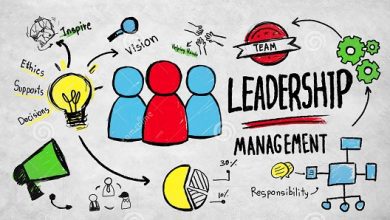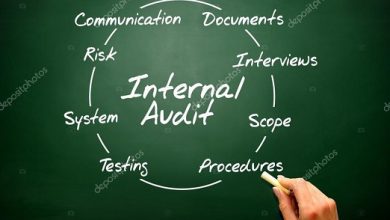Eco efficiency/emerge/3 goals/importance/benefits/application
What Is Eco-Efficiency?
Eco-efficiency is one of the bases for building a more sustainable future.
In practice, the concept has to do with a more rational use of non-renewable natural resources in the production of goods and services.
This must occur in order to reduce the impacts caused to the environment without compromising the quality of the product and without depriving human beings of having their needs remedied.
In other words, to produce more and better , generating greater revenue and using a smaller amount of raw material.
Although eco-efficiency is closely associated with companies, the main responsible for generating wealth from the exploitation of nature, any individual can adopt more conscious practices.
But that is a subject to be discussed further.
Eco-Efficiency Concept
The definition used by the World Business Council for Sustainable Development (CEMDS) is not very different from the one presented earlier.
According to the institution, developing with eco-efficiency means being able to produce and deliver competitive goods without excessively consuming natural resources and without polluting the environment.
In the same way, the quality of life and human needs cannot be left aside or left in the background.
In other words, it is necessary to find a balance between remaining economically thriving and keeping the planet healthy for future generations.
Eco-efficiency, therefore, is nothing more than the attempt to combine economic and environmental performance and achieve the long-awaited sustainable development.
When Did Eco-Efficiency Emerge?
It is difficult to establish precisely when the term eco-efficiency was born.
Apparently, its first appearances took place in the 1980s , when activists, NGOs and other entities began to charge large companies to reduce the damage they were causing to the environment.
Not by chance, the period was marked by some of the main environmental disasters in the world , such as:
- Bhopal Disaster, India (1984)
- Fire in Vila Socó in Cubatão (1984)
- Nuclear accident at Chernobyl (1986)
- Radiological accident in Goiânia (1987)
- Exxon Valdez oil spill in Alaska (1989).
Despite this context, it was only in 1992, at the Rio-92 Conference , that the term began to be used in the sense we know today.
In other words, it seeks to balance the increase in profitability with the reduction of ecological impacts.
On that occasion, Agenda 21 was created, an embryo of Agenda 2030, which proposed sustainable development as the solution to mitigate the socio-environmental problems of the time.
What Are The Three Main Goals Of Eco-Efficiency?
The World Business Council for Sustainable Development has defined three main objectives to achieve a balance between economic and environmental performance.
Are they:
Reduce Resource Consumption
This is where initiatives that seek to reduce the use of raw materials and non-renewable energy come in.
The improvement of recycling capacity, as well as the development of goods that have a longer shelf life, that escape from planned obsolescence, for example, are some examples of solutions.
Decrease The Impact On Nature
Preferably use renewable resources and, even so, in a more conscious way, thus reducing harmful impacts on the environment.
Taking care of how certain materials that are not biodegradable are disposed of and seeking the carbon neutral seal are good options here.
Provide Higher Quality Goods And Services To Customers
Taking care of the above two goals cannot mean compromising the customer experience .
After all, it is still an essential purchase factor.
But there are ways to maintain a balance, such as replacing your product packaging with more sustainable containers or offering additional support services.
What Are The Goals Of Eco-Efficiency Indicators?
Eco-efficiency indicators may vary from company to company.
Basically, they are tasked with evaluating performance from an ecological/sustainable and profitable point of view.
For this, companies have relevant initiatives and programs as a parameter, such as:
- Coalition for Environmentally Responsible Economies (CERES): in partnership with the Global Reporting Initiative (GRI) and the United Nations Environment Program (Unep), it is a guide for preparing sustainability balance sheets, which helps organizations to communicate their progress in the areas economic, social and environmental.
- Standardization in Environmental Performance Assessment (ISO 14031): uses environmental performance indicators, also called managerial, to help companies understand the impacts that their actions can cause to the environment.
How Important Is Eco-Efficiency?
It is impossible to envision a future without eco-efficiency.
After all, as we have seen, this concept aims to seek a balance between environmental and financial performance .
If there is no investment in eco-efficient initiatives, we are on our way to making human life on the planet even more difficult.
After all, the environment and ecosystems are already quite compromised and it is necessary to take care of them so that we do not reach an irreversible situation.
For this, however, it is not possible to pause all the machines and stop the growth of companies.
Especially because without private initiative and the generation of wealth that large corporations provide, there will be no capital to make the necessary ecological investments .
What Are The Benefits Of Investing In Eco-Efficiency?
Investing in eco-efficiency means living in a better world in many different aspects.
In addition, we can mention that this means enjoying benefits such as:
- Decrease production costs and increase profits
- Avoid environmental risks
- pollution reduction
- Improve the health of employees and people in general
- Achieve environmental legal compliance
- Ensuring the maintenance of natural resources
- Engaging people in environmental causes
- Minimize the release of toxic substances
- Extend the life of items
- Encourage recycling of used materials.
What Is The Relationship Between Eco-Efficiency And Sustainable Development?
Although not synonymous, eco-efficiency and sustainable development are closely linked concepts.
We can say that eco-efficiency is a step beyond sustainable development.
After all, while the second shows that evolving without harming the environment is economically viable, eco-efficiency shows that performance through balance can be even more financially profitable.
If, on this side, eco-efficiency is an advance in relation to sustainable development, it is also possible to say that the second is a slightly broader concept.
After all, it addresses other issues that go beyond ecological bias , such as gender equity, reduction of social inequalities, and so on.
How Can Eco-Efficiency Be Applied In Companies?
There are several initiatives that can be developed by companies that want to become eco-efficient.
To help you, we have divided the actions into three broad areas: water resources, energy and solid resources.
Follow up!
Eco-Efficiency And Water Resources
- Floors and rainwater harvesting mechanisms
- Gardens with native plants designed to ensure efficient sewage treatment
- Faucets and other water sources with timers to avoid wastage.
Eco-Efficiency And Energy
- Installation of wind power generators
- Encourage video meetings and meetings to avoid commuting
- Installation of presence sensors to avoid waste.
Eco-Efficiency And Solid Resources
- Turn waste into waste through recycling
- Reduce paper usage in your operations
- Properly dispose of batteries, batteries and other waste.
Examples Of Eco-Efficiency
Just as companies can develop eco-efficient actions , you, as a citizen, can also change your habits and adopt initiatives such as:
Compost
It is important to recycle solid waste, but have you ever thought about doing something similar with your organic waste ?
With compost, you will be stimulating the decomposition of this type of material and thus improving the quality of your soil.
Alternative Energy Sources
There are several sources of energy other than electricity that you can use in your home.
Among all the possibilities, solar tends to be the most viable alternative.
Despite having a relatively high cost for its implementation, due to the installation of the panels, in the medium term, it pays for itself.
Therefore, in addition to helping the planet , you will be saving on your electricity bill.
Reforestation Policies
“Every man must do three things in life: have a child, write a book and plant a tree ”.
These are the different legacies that, according to the Cuban poet José Martí, should be left by all human beings before they die.
Leaving the first two lessons aside, you can start your own reforestation policy.
After all, if each of the Earth’s 8 billion or so inhabitants planted a tree, the situation would be much better.
Conscious Use Of Water
It seems obvious to say, but simple measures , like turning off the faucet while washing dishes and brushing your teeth and taking showers faster, already help in a more conscious use of water.
Waste Treatment
You can also help treat solid waste better.
While much of your organic waste goes to your compost bin, cans, glass, plastics and paper can be separated and taken to recycling centers .
What Is The Relationship Between Business Management And Eco-Efficiency?
Eco-efficiency, nowadays, is nothing more than a strategic tool to overcome competitiveness in a market full of alternatives.
Often, when talking about the concept, we end up focusing too much on “eco” and forgetting about “efficiency”.
When managing a business guided by eco-efficiency, the manager is not only concerned with reducing the impacts caused to the environment, but also with reducing their production costs , delivering a quality product to the customer and, consequently, increasing their profit.
Therefore, the relationship between business management and eco-efficiency is increasingly a mandatory path for companies that want to stand out in their segments.




